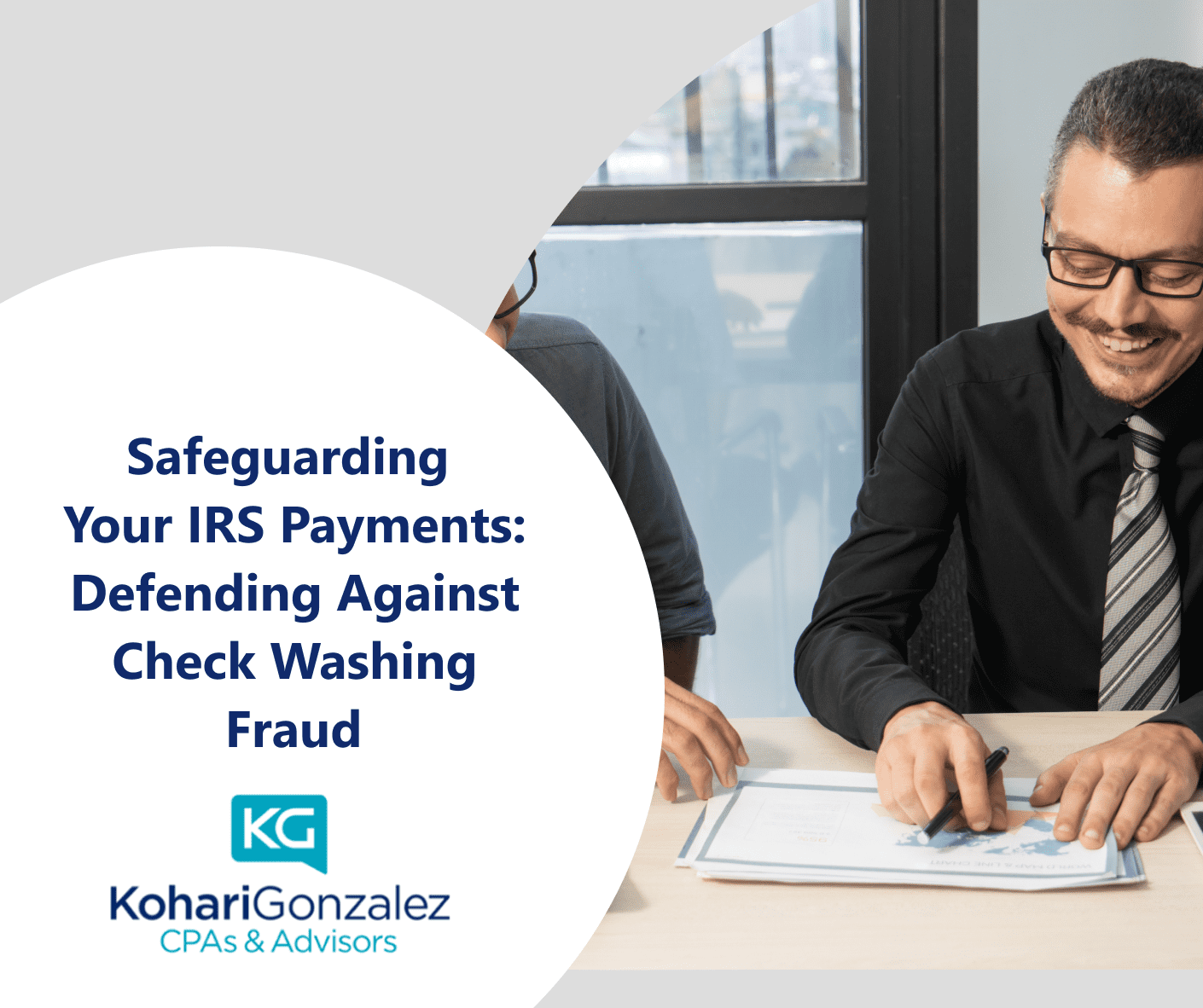
More knowledge is needed than ever before about securing your IRS payments at a time when financial frauds are getting more complex. There has been a rise in check washing fraud, a tactic used by criminals to take checks out of the mail, destroy important data, and change the payee and amount. It is important that you comprehend the precise methods used in this crime if you wish to safeguard your loved ones and yourself. We'll also cover taking preventative action to safeguard your bank transactions in this tutorial.
What is Check Washing Fraud
Criminals utilize a multi-step procedure called "check washing" to steal money from gullible victims. The plan works out like this:
1. Mail Theft: Criminals target checks in the mail, either from mailboxes or USPS collection boxes. This can involve individuals acting alone or as part of organized crime rings.
2. Chemical Alteration: Stolen checks undergo a chemical washing process that erases the payee information and amount, leaving the signature and paper intact. Alternatively, criminals may attempt to scratch off existing details.
3. Forgery: Once the check has been prepared, criminals then inscribe new information on the blank check, changing the name and amount at will.
4. Deposit and Withdrawal: The manipulated check is deposited into a bank account, either through traditional means or using mobile deposit services. Subsequently, the criminals swiftly withdraw the funds.
This process may involve different “actors” from the crime ring specializing in distinct roles, such as stealing, washing, or cashing checks, contributing to the scheme's complexity.
Mitigating Risks: Protective Measures
Take into consideration putting the following precautions in place to protect yourself from falling victim to check washing fraud:
1. Embrace Electronic Transactions: Shift towards electronic bill pay, transfers, and peer-to-peer payment apps, minimizing reliance on physical checks.
2. Opt for Secure Writing Practices: Use black gel pens, known for ink that is challenging to wash off. Brands like Uni-Ball pens with Super Ink claim added protection against fraud.
3. Mail Safely: If mailing checks is unavoidable, drop them off at the post office to minimize theft risks. Avoid using USPS collection boxes, especially in less-traveled areas.
4. Mailbox Vigilance: Regularly retrieve mail from your mailbox, and sign up for Informed Delivery from USPS to monitor expected mail.
5. Travel Considerations: When traveling, request a USPS mail hold to safeguard your mail from potential theft during your absence.
6. Financial Oversight: Frequently review your checking account for unusual or unexpected withdrawals, promptly identifying any signs of unauthorized activity. If you see a suspicious transaction, contact your bank or credit union immediately for assistance.
Responding to Fraud: Taking Swift Action
If you suspect check theft or notice forged checks, take immediate action:
1. Contact Your Bank: As noted, report any incidents to your bank immediately, enabling them to take preventive measures such as putting a hold on the check.
2. File a Police Report: In case of deposited forged checks, file a police report and work closely with your bank. Reimbursement policies may vary, and investigations could extend over months.
3. Regulatory Intervention: If disputes persist, reach out to the bank's regulator for assistance. Utilize resources like HelpWithMyBank.gov for national banks and relevant links for credit unions and state-chartered banks.
4. Report the crime the USPS .
Dealing with IRS Tax Obligations
Our office is here to help you navigate the outcome of financial fraud and the IRS. Below are some issues we need to resolve as we prepare to take action.
1. Assessing the Damage:
- Examine your IRS payment obligations to determine the impact of the lost funds.
- Identify the specific taxes owed and any associated penalties or interest.
2. Contacting the IRS:
- We will reach out to the IRS immediately to report the situation.
- Explain the circumstances surrounding the lost funds and inquire about potential relief options on your behalf.
3. Penalty Relief Programs:
- In cases of financial hardship due to fraud, the IRS may offer penalty relief programs.
- We will explore available options such as the First-Time Penalty Abatement or the Reasonable Cause Assistant.
4. Establishing a Payment Plan:
- We will work with the IRS to establish a viable payment plan based on your current financial situation.
- Discuss installment agreements or other arrangements to fulfill your tax obligations over time.
Beyond Check Washing: Monitoring Identity Theft
Being aware that identity thieves could use personal information as leverage, be on the lookout for identity theft:
1. Credit Monitoring: To quickly identify any efforts to create credit accounts using your information, check your credit on a regular basis or utilize monitoring services that offer free notifications.
2. Identity Theft Protection: Look into identity theft protection programs that provide monetary and practical support in the event that you require identity restoration.
You may fortify your defenses against check washing fraud and other financial dangers and ensure the security of your IRS payments by keeping informed and taking these precautions. Take control of your financial security right now and don't allow complex schemes jeopardize your financial security.

.png?width=352&name=IRS%20Dirty%20Dozen%20Scams%20for%202025%20What%20to%20Watch%20Out%20For%20(and%20How%20to%20Protect%20Yourself).png)

